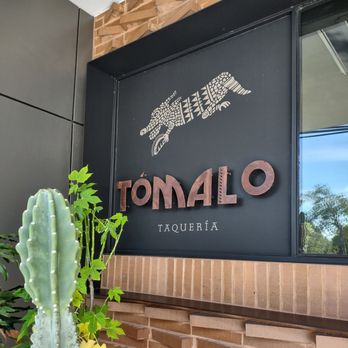We were lucky to catch up with Benjamin Smith recently and have shared our conversation below.
Benjamin, looking forward to hearing all of your stories today. What do you think Corporate America gets wrong in your industry?
This is actually a very sensitive one for me and I apologize for the lengthiness of the response but I have done numerous reports and findings on this. Here is what I put together.
Corporate America often struggles to fully grasp the nuances of the hospitality, restaurant, and bar industry, leading to missteps that can undermine operations and alienate customers. Here are some key areas where corporate America often falls short:
1. Prioritizing Metrics Over Experience
The Mistake: A heavy focus on quantitative metrics (e.g., labor costs, profit margins, or table turnover rates) at the expense of qualitative factors like guest experience and staff morale.
Why It’s Wrong: Hospitality thrives on creating memorable experiences, which often require flexibility, creativity, and investment in staff training. Treating service like an assembly line misses the personal touch guests expect.
2. Overstandardization
The Mistake: Applying a rigid, one-size-fits-all system across multiple locations or concepts.
Why It’s Wrong: While consistency is important, local markets vary in customer preferences, cultural norms, and operational needs. Overstandardization stifles the creativity and adaptability required to meet these unique demands of the guest.
3. Failing to Empower Employees
The Mistake: Treating staff as easily replaceable rather than as integral contributors to the brand’s success.
Why It’s Wrong: The frontline employees in hospitality are the face of the business. Disengaged or undervalued staff are far less likely to provide the high-quality service that builds guest loyalty.
4. Overlooking the Role of Community
The Mistake: Focusing solely on revenue generation without building relationships within the local community.
Why It’s Wrong: Restaurants and bars are often community hubs. Failing to integrate into the local culture can alienate regular patrons and prevent the all important organic word-of-mouth growth.
5. Sacrificing Quality for Cost-Cutting
The Mistake: Reducing costs by cutting corners on ingredients, staffing, or service standards.
Why It’s Wrong: Today’s guests are extremely savvy and can detect when the quality diminishes. Cost-cutting at the expense of the guest experience erodes brand reputation and customer loyalty.
6. Ignoring the Importance of Atmosphere
The Mistake: Overlooking design, lighting, music, and other ambiance factors.
Why It’s Wrong: In hospitality, the environment is part of the finished product. A well-crafted atmosphere elevates the guest experience and can very much justify premium pricing.
7. Misaligned Marketing Strategies
The Mistake: Relying on generic or disconnected marketing campaigns that don’t resonate with the actual guest experience.
Why It’s Wrong: Authenticity is key in hospitality. Overpromising or misrepresenting the concept alienates customers and creates a disconnect between expectations and reality.
8. Underestimating the Emotional Element of Hospitality
The Mistake: Treating hospitality as a transactional business rather than a relational one.
Why It’s Wrong: The hospitality industry thrives on emotional connections. Guests want to feel welcomed, valued, and cared for, which can’t be achieved through automation or detached processes alone.
9. Overreliance on Technology
The Mistake: Implementing technology solutions that prioritize efficiency over guest interaction, such as self-order kiosks in a fine-dining environment. This is far too common today.
Why It’s Wrong: While technology does and can enhance operations, hospitality requires human touchpoints that make guests feel special and engaged. The human interaction can not be replaced or replicated.
10. Focusing on Short-Term Gains Over Long-Term Growth
The Mistake: Prioritizing immediate profits at the expense of long-term brand building and customer loyalty.
Why It’s Wrong: Hospitality businesses succeed through repeat customers, word-of-mouth, and reputation. A short-term focus often leads to burnout among staff, declining service quality, and customer churn. Especially in today’s market where an oversaturation of options is much more prevalent.
What Hospitality Gets Right!
Unlike corporate America, the best players in hospitality prioritize people over profits. We understand the value of relationships—whether it’s with our customers, our staff, or our community. Corporate America can learn a great deal by embracing hospitality’s ethos of empathy, creativity, and personalization.
Again, sorry for the long response.

As always, we appreciate you sharing your insights and we’ve got a few more questions for you, but before we get to all of that can you take a minute to introduce yourself and give our readers some of your back background and context?
I am a 24-year hospitality professional. This is undoubtedly my passion. The art of creating a memorable experience for our guests. Which is always different but at the same time, always the same. Hospitality is about connections. At its core, hospitality is about making people feel seen, valued, and cared for. Whether it’s a warm greeting, a perfectly crafted dish, or a night to remember, these moments foster emotional connections between staff and guests. The human interactions in hospitality are immediate and personal, often creating a sense of shared purpose and fulfillment.
I came into this industry in 2000 and was brought up and learned from some of the best in the business. Where “old school” hospitality was so prevalent. Where I truly feel that I have a responsibility, is in sharing those skills and passing them along to new generations where that is not at the forefront. I pride myself on being a mentor and a resource to our employees. I feel it is necessary to “pass the torch”.

Any advice for managing a team?
One I find very important to me as one of my main passions is passing along my learnings, tricks of the trade, etc.
So, I again apologize for the lengthy response.
Managing a team and maintaining high morale is crucial for fostering a productive, engaged, and positive workplace. Here are actionable tips to achieve this, particularly in high-pressure environments like hospitality:
1. Communicate Openly and Transparently
Why It Matters: Employees need to understand the goals, challenges, and vision of the team to feel connected and aligned.
How I Do It: Hold regular team meetings to share updates and listen to feedback.
Clearly communicate expectations, changes, and successes.
Be honest about challenges while emphasizing solutions and opportunities.
2. Recognizing and Rewarding Contributions
Why It Matters: Feeling appreciated is one of the top drivers of employee satisfaction.
How I Do It: Offer verbal praise, handwritten notes, or public recognition for a job well done.
Establish an “Employee of the Month” program or similar incentives.
Celebrate personal milestones (birthdays, work anniversaries) to show you care about the individual.
3. Foster a Culture of Respect and Inclusion
Why It Matters: A respectful and inclusive workplace promotes trust and cooperation among team members.
How to Do It: Encourage collaboration and mutual support among staff.
Address conflicts promptly and fairly.
Promote diversity by valuing different perspectives and experiences.
4. Lead by Example
Why It Matters: Leaders set the tone for the entire team’s attitude and work ethic.
How I Do It: Demonstrate the behavior and standards you expect from your team.
Be approachable and willing to step in when needed.
Maintain a positive attitude, even during challenging times.
5. Provide Opportunities for Growth and Development
Why It Matters: Employees who feel they are learning and growing are more likely to stay engaged and committed.
How I Do It: Offer training programs, workshops, or mentorship opportunities.
Encourage cross-training to help staff expand their skills.
Set clear career paths and goals for those seeking advancement.
6. Empower Your Team
Why It Matters: Giving employees autonomy fosters a sense of ownership and pride in their work.
How I Do It: Trust your team to make decisions within their scope of work.
Involve employees in decision-making processes, especially when changes affect them directly.
Encourage creative problem-solving and acknowledge their contributions.
7. Prioritize Work-Life Balance
Why It Matters: Overworked employees are more likely to burn out and disengage.
How I Do It: Create fair schedules that allow for adequate rest.
Encourage time off and avoid calling staff during their personal time unless it’s an emergency.
Provide flexibility when possible, such as allowing staff to trade shifts or adjust hours.
8. Cultivate a Positive Environment
Why It Matters: A positive work environment reduces stress and promotes teamwork.
How I Do It: Create a comfortable workspace with thoughtful touches (e.g., good lighting, music).
Organize team-building activities, such as outings or small celebrations.
Keep the energy upbeat with humor, music, or small surprises (e.g., coffee or snacks).
9. Handle Challenges with Empathy and Fairness
Why It Matters: How you handle tough situations defines your team’s trust in you.
How I Do It: Listen to employees’ concerns and address them thoughtfully.
Treat everyone equally and avoid favoritism.
Approach mistakes as learning opportunities rather than just reasons for discipline.
10. Continuously Gather Feedback
Why It Matters: Understanding what your team needs or wants helps you adapt and improve.
How I Do It: Use anonymous surveys or suggestion boxes to encourage honest feedback.
Regularly check in with individual team members.
Act on feedback and show your team that their opinions matter.
11. Build Strong Relationships
Why It Matters: Employees who feel valued as individuals are more likely to stay engaged and loyal.
How I Do It: Take the time to get to know your staff—learn about their interests, goals, and challenges.
Be approachable and create an open-door policy.
Balance professionalism with genuine warmth and empathy.
12. Set Clear Goals and Celebrate Milestones
Why It Matters: Working toward shared objectives unites the team and provides a sense of accomplishment.
How I Do It: Define clear, achievable goals for the team and individuals.
Celebrate when milestones are reached with acknowledgment, rewards, or small celebrations.
Reflect on achievements as a team to reinforce shared success.
Why High Morale Matters
Big picture. A team that has high morale delivers better service, creates stronger guest experiences, and is more likely to stay committed to the organization. By leading with empathy, consistency, and intentionality, you can create a workplace where employees feel inspired and valued.

Have any books or other resources had a big impact on you?
Rich Dad Poor Dad
Unreasonable Hospitality
Contact Info:
- Website: https://urbanspacehospitality.com/ www.codependetnatx.com/ www.tomaloatx.com/
- Instagram: @codependentatx @tomaloatx




Image Credits
Jessica Attie


